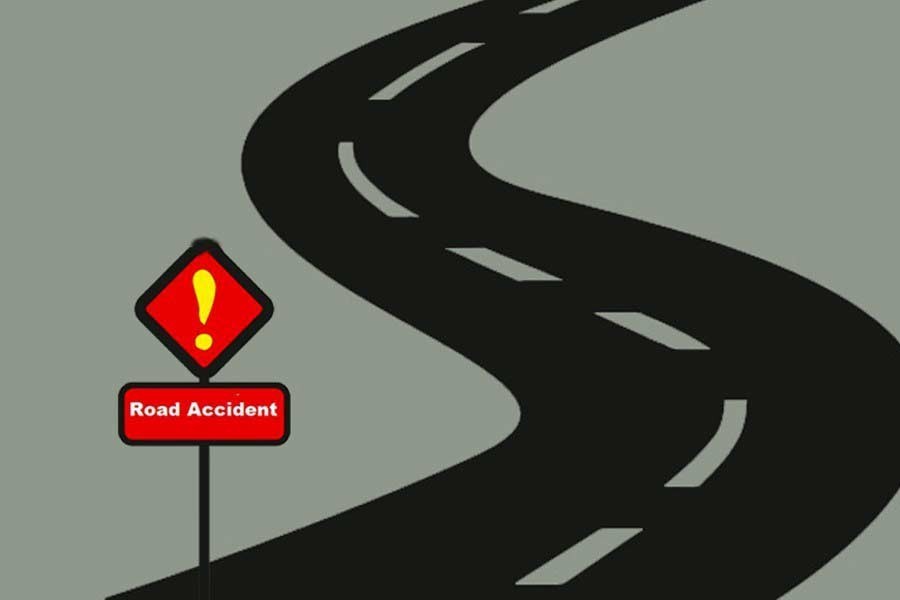An alarming rise in road accidents in 2021 has become a cause for serious concern ---only more so, because the undesirable momentum has led to unmitigated road tragedies in the first quarter of the inaugural month of the New Year. Over the past few days, the capital city and its suburbs in particular have witnessed a number of fatal accidents, one of those involving a bus-train collision on a level-crossing. How the accidents are galloping is best documented by the annual report prepared by the Road Safety Foundation (RSF), the name of which suggests the area of its work. According to it, 5,371 road accidents took place in 2021 as against 4,735 in 2020 consequently pushing the death toll to 6,284 and injury to 7,468 people from the previous year's 5,431deaths and 7,379 injured people. Compared to 2020, accidents registered a 13.43 per cent rise, death 15.70 per cent and injury 1.20 per cent in the just departed year.
The report has rightly cited the abnormal rise in accidents in the capital city last year. As many as 131 road crashes occurred in Dhaka City, claiming 137 lives. Of the casualties, an overwhelmingly high percentage (52.55 per cent) was pedestrians and the second highest percentage consists of motorcycle riders. It gives the impression that the Road transport Act 2018 endorsed by parliament following school students' tenacious movement has only made transport operators both on highways and roads all across the country desperate to undermine the provision with disdain. The city roads were not this unsafe before. There is a method in madness, though: once a student is crushed under the wheels, a few more are most likely to join the death procession. At least three university students met their end in separate incidents while crossing roads within a week. Can it be a coincidence that once a garbage truck kills a student of the Notre Dame College under its wheels, another repeats the crime the next day by taking a printing press man's life?
So far as road accidents are concerned, the transport operators do not take it seriously. They have developed a notion that accidents are a part of vehicular operation and they cannot be held accountable for those. In fact, the problem lies with their service conditions under which they have to give their labour. Mostly a kind of modern-day slavery, the job takes time, energy and above all dignity out of them but for a pittance. There is no job security and other benefits enjoyed by workers in some other formal and informal sectors. Denied the dignity of life, they also could not care less for other people's life. That life is precious simply does not strike the right chord in them.
The dichotomy of the provision of stricter punishments as against transport operators' unregulated and insecure service with no time schedules and limit escape's every one's notice. They have reasons to be angry and desperate. Regularisation of their jobs with provision for required training and benefits will definitely improve transport operation, minimising the chance of accidents. If the dignity of their service and life is recognised, they too will take pains to return back the value of life. Then they must not be forced to take charge of the rundown vehicles on the road as part of disciplining movement of vehicles on roads and highways.


